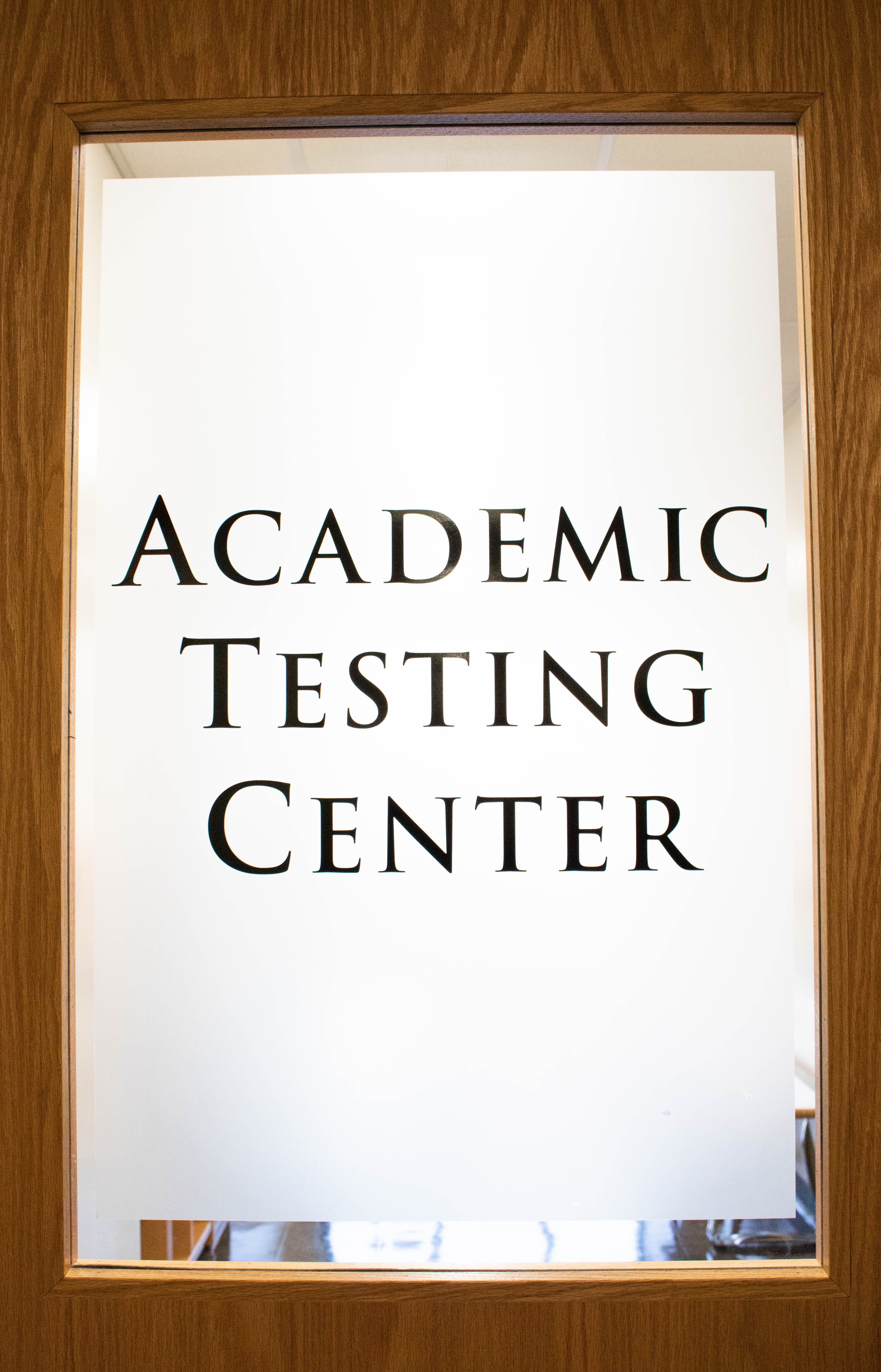URI’s Academic Testing Center, a place for students with accommodations to take exams, is finally back after being shut down due to COVID-19. PHOTO CREDIT: Melissa Marchese
After being shut down in March 2020 due to COVID-19, the Academic Testing Center (ATC) reopened for the first time on Nov. 2.
The University of Rhode Island’s ATC is an important place for students with disability accommodations and those engaged in athletic or academic conferences to have a safe place to take exams, according to Assistant Director Lisa Macaruso.
Interim Director of the Office for the Advancement of Teaching and Learning (ATL) Kathleen Torrens said the ATC was busy before the COVID-19 shutdown.
“Prior to COVID it was a very busy place,” Torrens said. “[They] tested people five days a week from like [8:30 a.m. until 6:30 p.m.]”
Torrens chose Macaruso as the ATC assistant director and Sue Barrett as the testing coordinator in late September 2021. The Center implemented new practices focused on safety to mitigate COVID-19 in order to reopen.
Macaruso has worked closely with the ATC previously as the assistant director of the URI Disability, Access, and Inclusion department, starting in 2017.
Macaruso sees the ATC as an essential student service that has implemented COVID-19 mitigation protocols while continuing to professionally proctor students with the Americans with Disabilities Act (ADA) and American Board of Radiology (ABR) core exam accommodations.
“We also ensure that we have all those other great mitigating features, that there is an abundance of hand sanitizer, that we are wiping down spaces, and we’re keeping all of the testing materials as sanitized as possible for the students,” Macaruso said.
As a Mental Health First Aid Instructor since 2016, Macaruso has overseen an initiative to have all ATC proctors become mental health first aid certified by attending an eight-hour national certification course. Macaruso feels that the certification will help the proctors understand students by listening without judgment, reassuring students and encouraging students to get professional support during a time of increased pressure caused by COVID-19.
“We are all trained and aware of what our students are facing and how to help identify early signs and symptoms of mental health concerns and ensure that we, and my staff know how to encourage them to get the appropriate help when necessary,” Macaruso said.
Macaruso found that the small change of incorporating blue polos for proctors to wear has added to the professionalism and theme of academic integrity within the center. She also noted that the polos will provide a simple way to identify testing proctors.
Besides reopening the center, Torrens hopes to get the ATC certified by the National Testing Center Association as Macaruso integrates cultural awareness training into the center.
“There are protocols that you have to adhere to, there are rules you have to follow and capabilities that you have to demonstrate, and to be certified as that kind of a center means that we’re doing our job really well,” Torrens said.
Macaruso hopes that the ATC will bring conversations about academic integrity to help URI understand how the ATC partners with faculty and students to grow a culture of academic integrity on campus.
Macaruso also plans for proctors to learn about social justice and inclusion from the URI Community, Equity and Diversity department and safe zone training from the Gender and Sexuality Center.
“We will be looking at making sure that all the proctors in the future have access to the social justice and inclusion micro-credential offered by CED and we also have a Safe Zone Training scheduled for the proctors coming up [on] Jan. 22,” Macaruso said.
Torrens felt that the reopening of the ATC can also bring new student exam accommodation opportunities and said that the opportunities are answers to questions that can help URI students.
“One is how can we provide opportunities for students whose first language may not be English, to have extra time or a quiet space to take exams?” Torrens said. “Because there have been a couple of questions that have come across our desk that our students who are struggling in courses because of their language skills.”
Since the ATC reopened, Torrens and Macaruso have spoken about providing longer ATC hours and looking for a larger space to help expand ATC services at URI in the near future.





